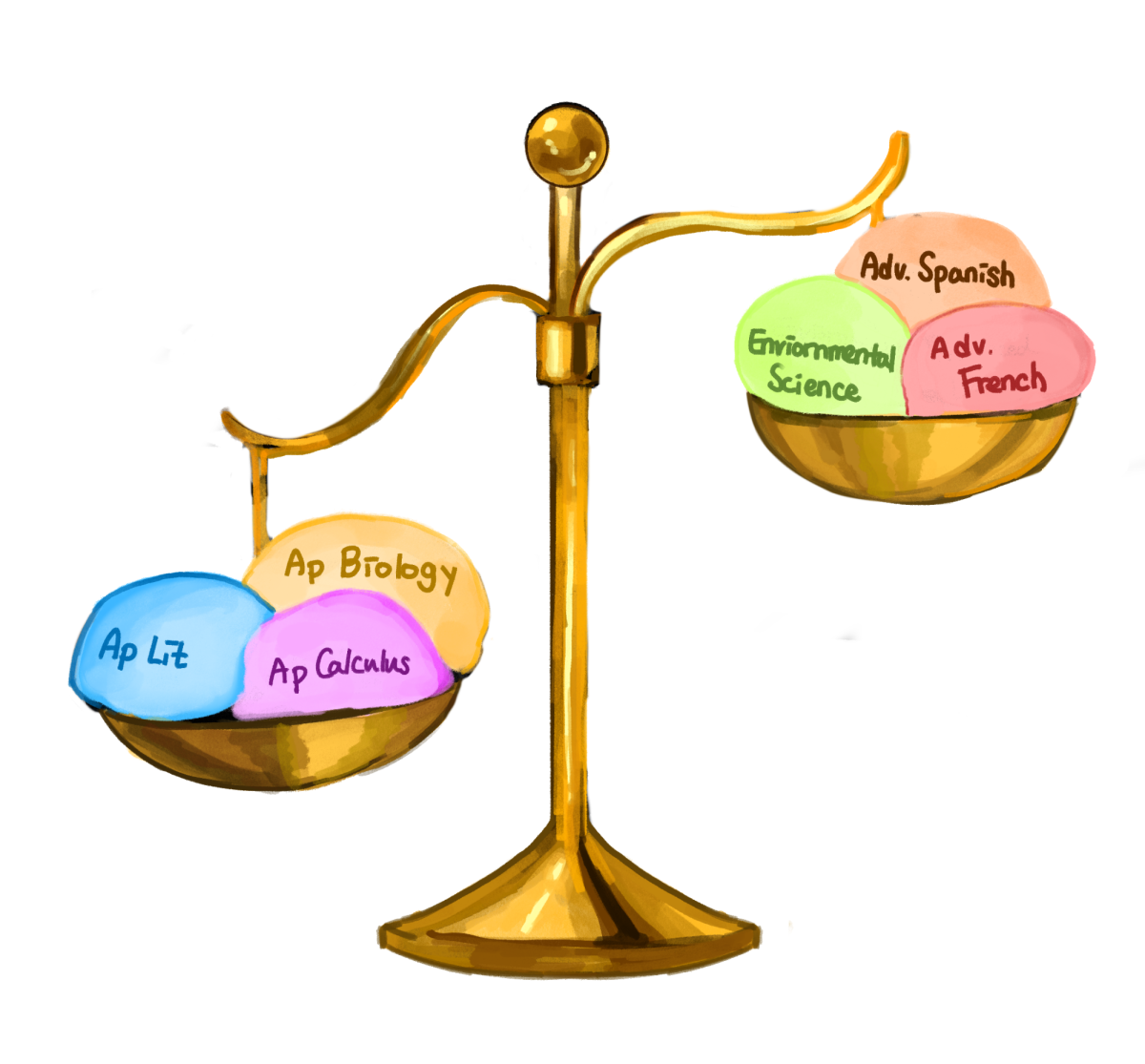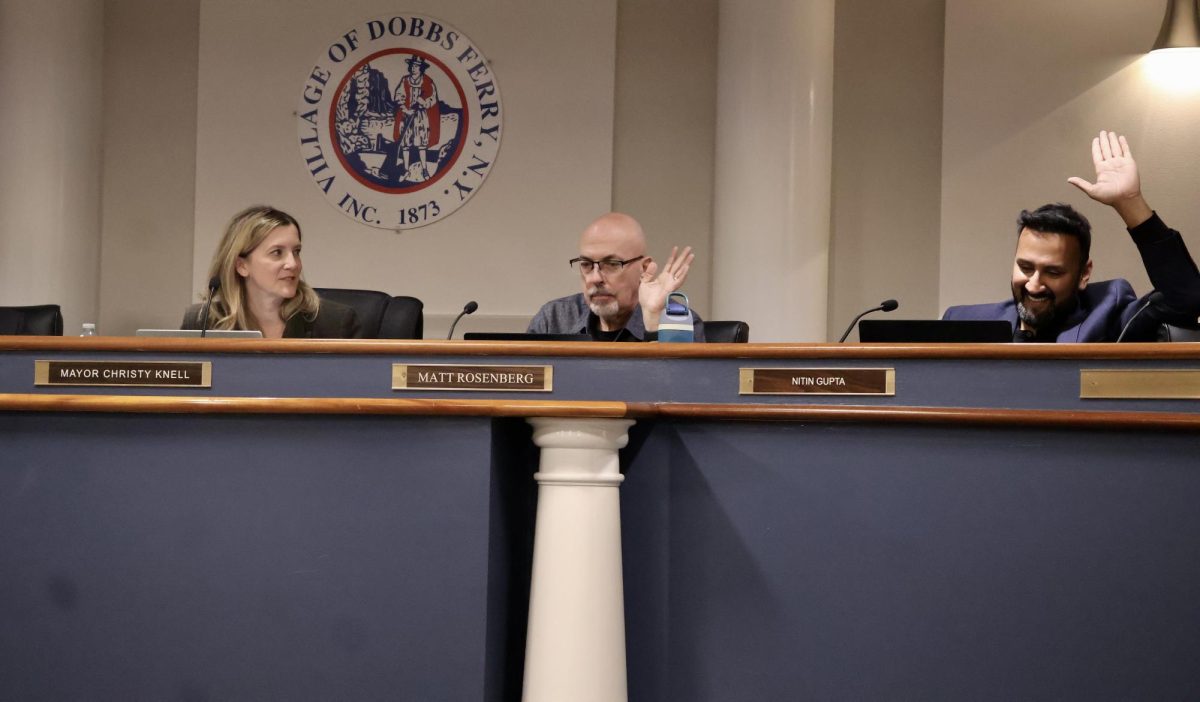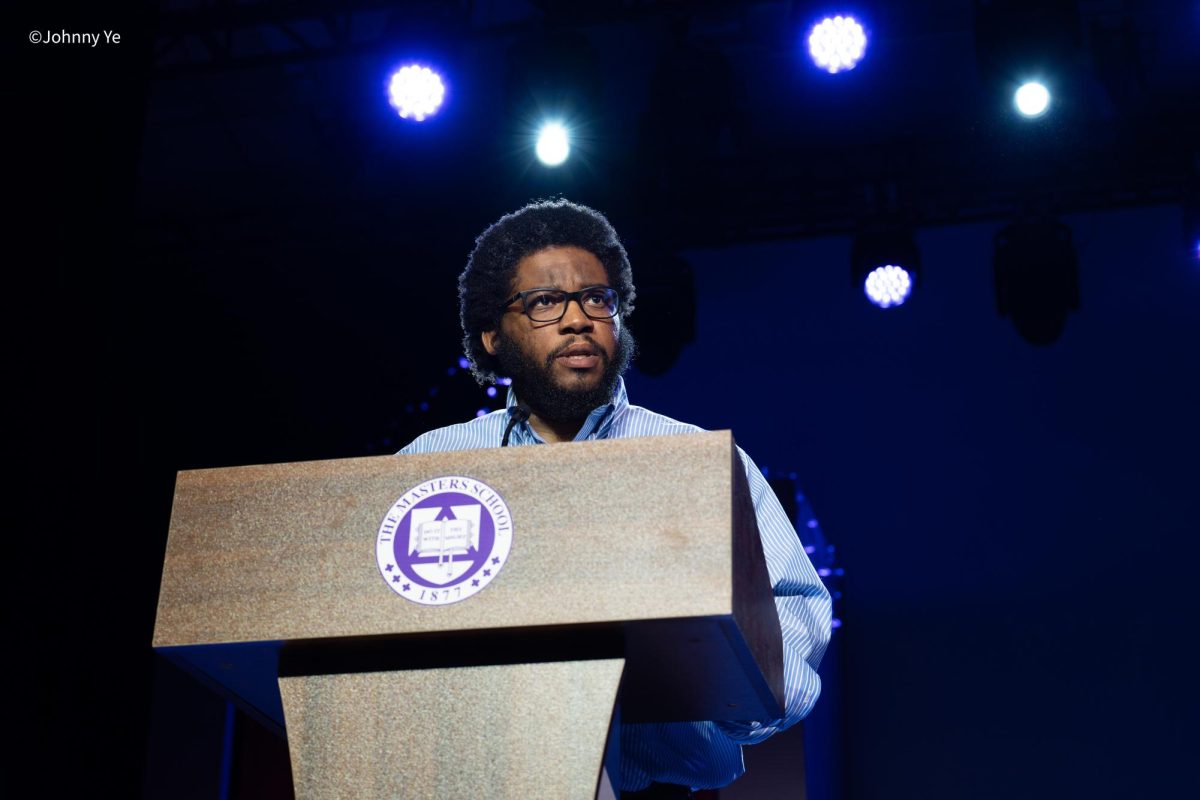On any school day at any time, students walking into the library are bound to see a few upperclassmen scratching their heads over AP Chemistry or burying their noses in an AP Calculus textbook.
Advanced Placement (AP) courses have been a central aspect of the Masters curriculum since The School first introduced them over 35 years ago. AP courses are designed by the College Board with the intention of providing high school students with more difficult, college-level classes. They culminate in a comprehensive test taken by every student in each individual AP class.
However, starting in 2027, these notoriously difficult classes will no longer be offered at Masters in their current form.
Over this past summer, Head Of School Laura Danforth emailed the entire school community to announce the curriculum change .
She said, “The Masters School has decided to move away from the College Board Advanced Placement (AP) program in favor of our own internally designed, academically rigorous suite of courses that more closely align with our School’s mission”
The framework for these new rigorous courses is being developed by a committee led by Math Department Chair Marianne van Brummelen and Dean of the Class of 2026 Darren Wood.
Van Brummlen said, “The School has been in conversation [about removing APs] for a decade or more, so it’s a conversation that has been going on for a long time, both at Masters and at a lot of independent schools.” She added that the committee is not directly in charge of creating the new coursework. Instead, each individual department will help create the new courses within it.
Van Brummlen gave insight into the specific reasons for the switch. She said, “Masters decided that the AP curriculum was not right for us because it did not give us the flexibility to run the courses in the mission-aligned way that we want.”
Director of College Counseling, Adam Gimple, said, “It’s important to note that this significant of a decision was not done in a vacuum. It was done in consultation with higher education and with feedback and interactions with other schools who have made a similar move.”
Gimple also noted that many other prestigious independent schools across the U.S. are making similar switches.
“In the state of New York, 50% of independent schools have either considered making the switch [away from APs] or are in the process of -or have already completed- it. We are in good company,” said Gimple.
In the past, one of the primary appeals of APs was their difficulty. Junior Bennet Sonnenberg, who is taking AP Bio, said, “I took APs because of the challenge factor. There is a unique sense of advanced learning you get when you take an AP course.” The committee plans on keeping the courses academically challenging, but they are also hoping to steer clear of outdated measurements of difficulty such as sheer quantity of work or excessive readings when creating the basis for the curriculums.
Wood said, “We want the courses to be challenging in great ways, but we don’t want the challenge to be based on volume or speed.”
Another big reason for taking APs in the past has been their large impact on college. Not only do they help bolster academic profiles, but they also allow students to ready themselves for college while they are still in high school. Nico Khoury-Levy, a junior who is taking three APs said, “I took APs because I wanted to push myself in the topics I am interested in, and because showing academic rigor is important for college applications.”
Ending APs may bring about questions regarding the switch’s impact on college admissions. However, some of those concerns are alleviated by colleges’ policies regarding schools in which APs aren’t made available to students. Gimple said, “I have asked every single college admissions officer that came through our doors what impact [moving away from APs] would have on admissions, if we switched to an even more stellar program. Every single one of them said it would have no impact whatsoever on how students are viewed in admissions.”









